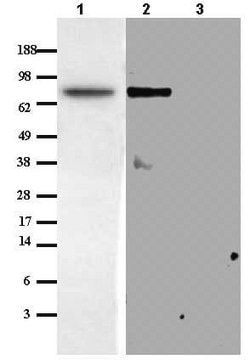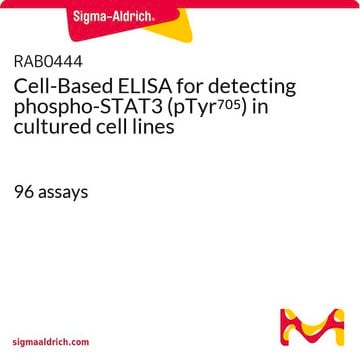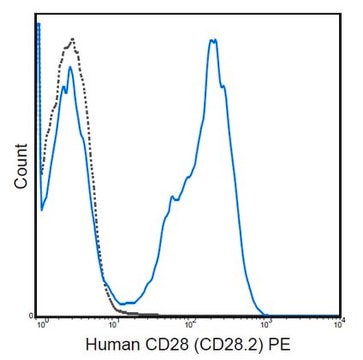AV48056
Anti-ST14 antibody produced in rabbit
affinity isolated antibody
Sinónimos:
Anti-HAI, Anti-MT-SP1, Anti-MTSP-1, Anti-MTSP1, Anti-PRSS14, Anti-SNC19, Anti-Suppression of tumorigenicity 14 (colon carcinoma), Anti-TADG-15
About This Item
WB
western blot: suitable
Productos recomendados
biological source
rabbit
Quality Level
conjugate
unconjugated
antibody form
affinity isolated antibody
antibody product type
primary antibodies
clone
polyclonal
mol wt
95 kDa
species reactivity
pig, human, mouse, bovine, rat, horse
packaging
pkg of 100 μL buffered aqueous solution
pkg of 50 μg lyophilized powder
concentration
0.5 mg - 1 mg/mL
technique(s)
immunohistochemistry: suitable
western blot: suitable
NCBI accession no.
UniProt accession no.
storage temp.
−20°C
target post-translational modification
unmodified
Gene Information
human ... ST14(6768)
Categorías relacionadas
General description
Rabbit Anti-ST14 antibody recognizes human, mouse, rat, bovine, and rabbit ST14.
Immunogen
Application
Biochem/physiol Actions
Sequence
Disclaimer
¿No encuentra el producto adecuado?
Pruebe nuestro Herramienta de selección de productos.
Storage Class
10 - Combustible liquids
wgk_germany
WGK 3
flash_point_f
Not applicable
flash_point_c
Not applicable
Elija entre una de las versiones más recientes:
Certificados de análisis (COA)
¿No ve la versión correcta?
Si necesita una versión concreta, puede buscar un certificado específico por el número de lote.
¿Ya tiene este producto?
Encuentre la documentación para los productos que ha comprado recientemente en la Biblioteca de documentos.
Nuestro equipo de científicos tiene experiencia en todas las áreas de investigación: Ciencias de la vida, Ciencia de los materiales, Síntesis química, Cromatografía, Analítica y muchas otras.
Póngase en contacto con el Servicio técnico








